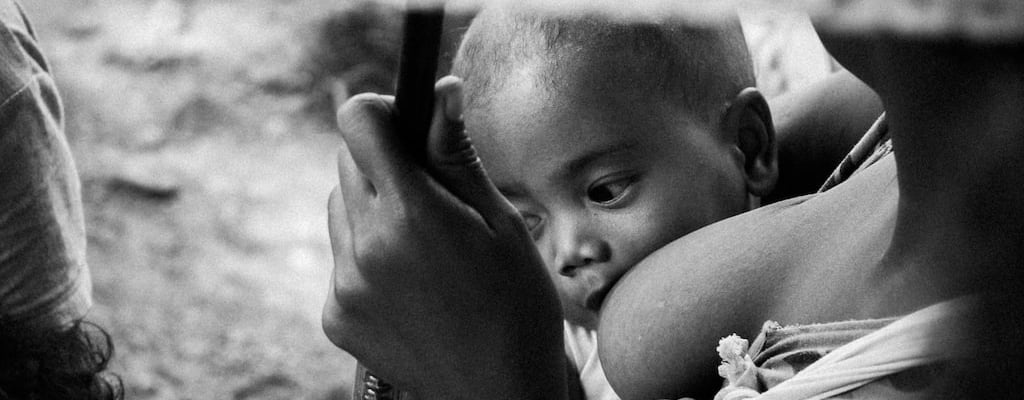be left holding the baby: Idiom Meaning and Origin
What does ‘be left holding the baby’ mean?
The idiom "be left holding the baby" means to be left with the responsibility or blame for a difficult situation or problem, usually when others have abandoned their duty or involvement.

Idiom Explorer
The idiom "let it be" means to leave something alone or to not interfere with a situation. It suggests accepting or allowing things to happen without trying to control or change them.
The idiom "let down" means to disappoint or fail to fulfill someone's expectations or hopes.
The idiom "leave the ball in someone's court" means to give someone the responsibility or opportunity to take action or make a decision in a situation, often after one's own efforts or turn has been completed.
The idiom "leave someone to their own devices" means to allow someone to do something in their own way, without interference or help from others.
The idiom "leave someone in the lurch" means to abandon or betray someone in a difficult or challenging situation, leaving them without any help or support.
The idiom "leave someone holding the baby" means to leave someone with a difficult or unexpected responsibility that they must deal with on their own.
The idiom "leave someone high and dry" means to abandon or forsake someone in a difficult or helpless situation without any support or assistance.
The idiom "leave it be" means to not interfere or to let something remain as it is without trying to change or fix it.
The idiom "leave behind" means to forget or not bring something with you when you go somewhere. It can also mean to abandon or neglect someone or something.
The idiom "hold up one's end" means to fulfill one's responsibilities or contribute one's fair share in a group or partnership.
Decoding a Responsibility
The idiom "be left holding the baby" has several meanings and can be traced back to the 19th century. It is a way to describe a situation where someone is unexpectedly responsible for a problem or a difficult task. This idiom likely comes from the literal act of leaving someone with a baby, symbolizing a burdensome responsibility thrust upon them.
One possible meaning of this idiom is that it refers to someone being left with the consequences or aftermath of a situation that they didn't cause. It implies a sense of being unfairly burdened with the blame or responsibility for something that someone else initiated or should have taken care of.
Another interpretation of this idiom is more literal. It refers to the act of being left alone with a baby. This conveys the idea of being unexpectedly and suddenly thrust into a caretaking role, often without the necessary preparation and support.
The idiom can also be applied in situations beyond the literal caretaking of a baby. It can describe being left responsible for any difficult or challenging task or situation, with the implication that others have abandoned or betrayed the person facing the burden.
For example, imagine a scenario where a group of colleagues is collaborating on a project. One member of the team makes a critical error that jeopardizes the entire endeavor. However, that person quickly disappears, leaving another colleague to deal with the consequences and find a way to rectify the situation. In this case, the colleague who is "left holding the baby" is now burdened with the responsibility of fixing the mistake and salvaging the project.
The idiom "be left holding the baby" is commonly used in informal and conversational settings. It can be found in various contexts, including everyday conversations, literature, and even professional settings. Its versatility allows it to be applied to different scenarios, making it a useful expression to convey the idea of unexpected responsibility or the consequence of someone else's actions.
Another related idiom is "leave someone holding the baby." This idiom signifies the act of deliberately, or negligently, leaving someone with a problem or responsibility that should have been shared or addressed collectively. It adds another layer of unfairness and betrayal to the situation, as it suggests that the person being left with the task or problem is being left alone to deal with it.
Similarly, the idiom "leave someone high and dry" carries a similar meaning. It describes the act of leaving someone in a difficult or helpless situation without any support or assistance. This idiom amplifies the sense of abandonment and betrayal, emphasizing that the person is left to face the challenging circumstances alone, with no one to rely on for help or guidance.
Another related idiom is "hang out to dry." This idiom signifies the act of leaving someone in a vulnerable position, with no protection or recourse. It implies that the person has been exposed to potential harm or negative consequences, often as a result of someone else's actions or decisions.
The idiom "be left holding the baby" has multiple interpretations related to being unexpectedly burdened with responsibility or consequences. Despite uncertainty regarding its exact origins, this idiom is widely used and understood, serving as a metaphorical representation of being left with a challenging task or difficult situation. Other related idioms, such as "leave someone holding the baby," "leave someone high and dry," and "hang out to dry," add layers of unfairness, betrayal, and vulnerability to the concept of shouldering an unexpected burden.
Example usage
Examples of how the idiom be left holding the baby can be used in a sentence:
1. After their co-workers left the office early, Sarah was left holding the baby and had to finish the entire report by herself.
2. Mark planned a surprise birthday party for his friend, but when everyone canceled last minute, he was left holding the baby and had to come up with a new plan.
3. The project team was relying on Tom to complete an important task, but he resigned without finishing it, leaving his colleagues holding the baby.
More "Responsibility" idioms



